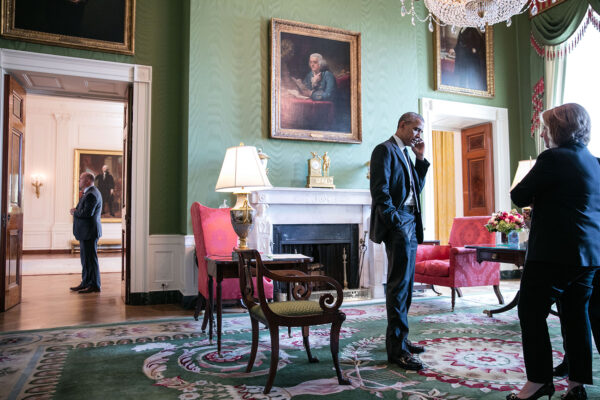
Derek Chollet makes a compelling argument at Defense One against what he calls the “myth” of American disengagement.
Chollet, who is a former assistant secretary of defense and currently with the German Marshall Fund of the United States, demonstrates region by region that America’s retreat under Barack Obama is hugely overstated.
Much of this is rather a rebalancing of American priorities, away from the Middle East and toward the Far East, for example, as well as a more discriminate application of American power, away from vast military deployments and toward what is called offshore balancing.
The Atlantic Sentinel discussed that shift at length last year.
Where Chollet is worth quoting here is when he wonders why this myth of disengagement endures.
Anxiety
He volunteers two explanations. The first is that America’s friends around the world are — for various reasons — anxious and their anxieties are reflected in the Washington echo chamber.
America’s partners in Asia, Europe and the Middle East all feel nervous about the rising insecurity in their regions and the respective challenges of China, Russia and Iran. They all want more of the United States and they all have maximalist ambitions for what Washington can and should do.
America simply can’t satisfy everybody and that will always leave it open to criticism that it isn’t doing enough.
Israeli and Saudi complaints, to take one pertinent example, and heard by a sympathetic audience in Washington DC and repeated at conferences, in journals and opinion magazines and eventually in Congress.
Who made the myth?
None of this is new, though. Client states always want more attention and support. What is making the accusation of disengagement stick to Obama is that his critics at home are determined — for political reasons — to make it stick.
As Chollet puts it, “conservatives have relentlessly peddled the caricature that Obama is feckless, weak and illegitimate” from the start of his presidency. The “apology tour”, the “cuddling up to dictators”, the “throwing Israel under the bus” — the Republican Party, writes Chollet, “has become a myth-making machine.”
Bluster
He argues that “engagement” is too often a code word for leading out front, largely alone and blowing things up.
When nominally respectable conservatives endorse such views, it leads to unthinking tough talk like former Republican presidential candidate Ted Cruz vowing to “carpet bomb” the self-declared Islamic State out of existence (no matter the huge civilian casualties this implies) or Donald Trump suggesting the military will break the law if he says so in order to kill the families of terrorists.
This isn’t strength; such views do not reveal a confidence in America’s ability to prevail over a gang of pretentious jihadists currently avoiding American bombs and American-made bullets in Iraq and Syria. They are rather the voices of insecurity cloaked in bluster.
Rightwingers can find plenty to criticize in Obama’s foreign policy. Perhaps he did overlearn the lessons of the Iraq War. Perhaps he underestimated Vladimir Putin’s designs in Europe. Perhaps he should have been more forceful with China — or more accommodating.
But whatever merit those criticisms might have, they do not add up to proof of “disengagement” over the last seven years.
